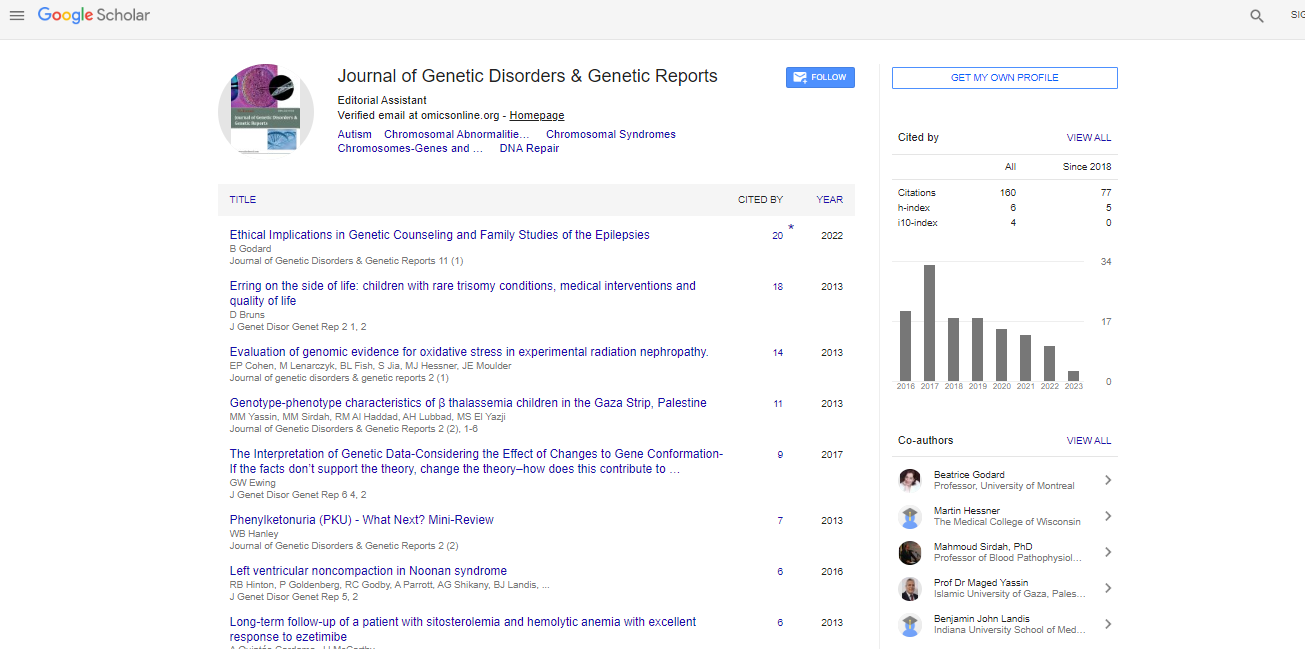Research Article, J Genet Disor Genet Rep Vol: 5 Issue: 2
Mutational Analysis in Gaucher Disease: Implications in Genetic Counseling and Management.
| Inusha Panigrahi1, Jaswinder Kalra2, Prasoon Goyad1, Preeti Khetarpal3 and Anjana Munshi3* | |
| 1MD, Department of Pediatrics, Post Graduate Institute of Medical Education and Research (PGIMER), Chandigarh, India | |
| 2MD, Department of Obstetrics and Gynecology (Obstetrics and Gynecology), Fetal Medicine Clinical), Post Graduate Institute of Medical Education and Research (PGIMER), Chandigarh, India | |
| 3PhD, Centre for Human Genetics and Molecular Medicine, School of Health Sciences, Central University of Punjab, Bathinda, India | |
| Corresponding author : Anjana Munshi Centre for Human Genetics and Molecular Medicine, School of Health Sciences, Central University of Punjab, Bathinda, India Tel: 09872694373 E-mail: anjanadurani@yahoo.co.in |
|
| Received: December 04, 2015 Accepted: March 24, 2016 Published: March 31, 2016 | |
| Citation: Panigrahi I, Kalra J, Goyad P, Khetarpal P, Munshi A (2016) Mutational Analysis in Gaucher Disease: Implications in Genetic Counseling and Management. J Genet Disor Genet Rep 5:2. doi:10.4172/2327-5790.1000132 |
Abstract
Gaucher disease (GD) is the most common LSD worldwide. The disease is caused due to mutations in β-glucocerobrosidase (GBA) gene located on chromosome 1. The mutations results in the deficient activity of acid β-glucosidase (glucocerebrosidase) enzyme. It is inherited in an autosomal recessive fashion and both men and women are affected equally. We report here two families wherein the mutation analysis for the disease was performed as the clinical features of the children were suggestive of GD. In the first family the enzyme analysis reports of the children were normal but GD was confirmed upon mutation analysis. In another family who had come for prenatal diagnosis, the parents were confirmed to be heterozygote of normal mutation whereas the foetus was found to be of carrier status. The family had already lost two children who had clinical features suggestive of Gaucher. We conclude that in some cases the enzyme analysis report may not be conclusive and mutation analysis has to be carried out to confirm the disorder. Prenatal diagnosis for lysosomal storage disorders like GD is also recommended among high risk couples.
 Spanish
Spanish  Chinese
Chinese  Russian
Russian  German
German  French
French  Japanese
Japanese  Portuguese
Portuguese  Hindi
Hindi 



